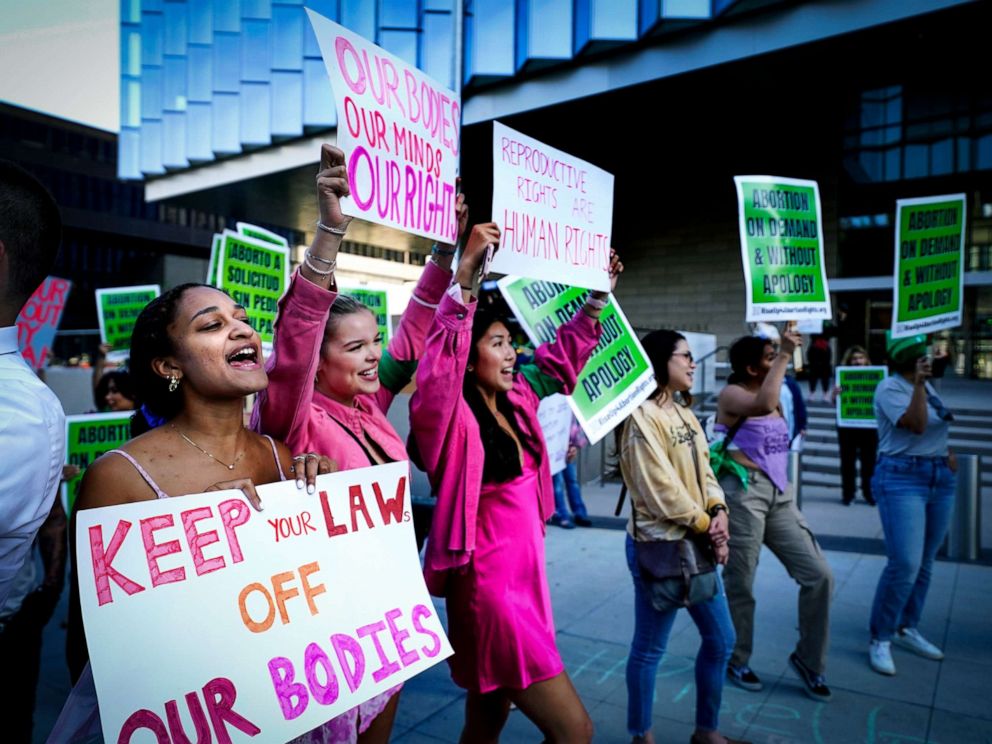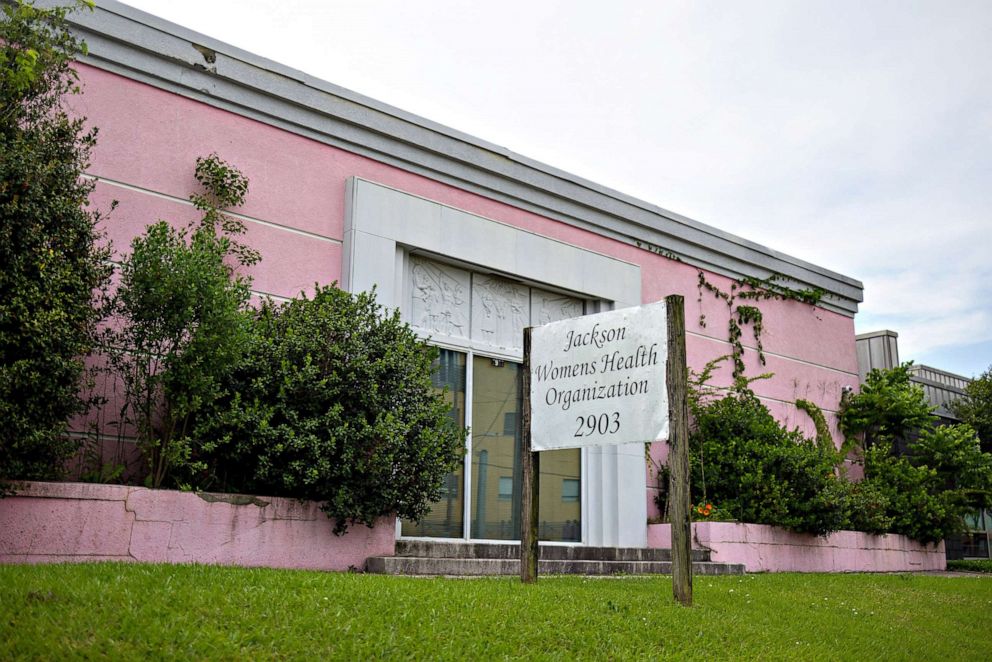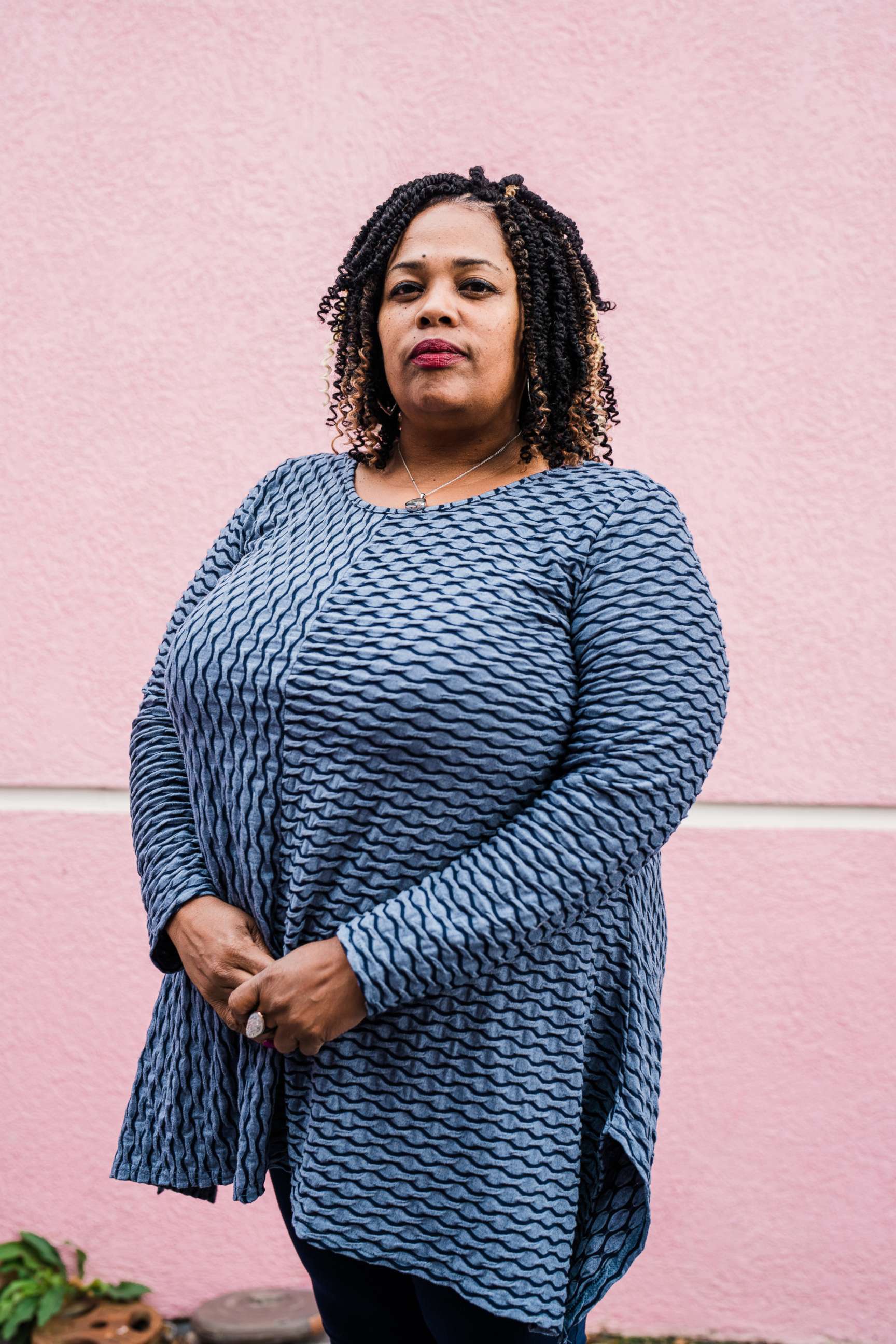Mississippi abortion clinic director responds to SCOTUS draft: 'It didn't come as a shock to a lot of us here'
Abortion-rights advocates respond to the leaked Supreme Court draft opinion.
Abortion-rights advocates are responding to the leaked draft opinion of the Supreme Court majority opinion on the pending Mississippi abortion case that was first reported by Politico on Monday.
According to the copy of the draft opinion, which the court has confirmed is authentic but not final, a majority of justices appear to side with the Mississippi state legislature and will vote to effectively overturn the landmark abortion precedent set by Roe v. Wade.

Amid the reports, a recent ABC News/Washington Poll found that a majority of Americans support upholding Roe v. Wade. Since Monday, many are calling on Congress to act. President Joe Biden said Tuesday that “a whole range of rights are in question.”
Some abortion providers, like Shannon Brewer, said they weren’t surprised by the draft opinion. Brewer is the director of Mississippi’s only abortion clinic, Jackson Women’s Health. She spoke with ABC News’ podcast “Start Here” on Wednesday morning.
"This is what we've been expecting," said Brewer. "It didn't come as a shock to a lot of us here.”
Currently, in the state of Mississippi, abortion is legal up until 20 weeks into the pregnancy.
In October, the Mississippi state legislature passed a law that would reduce the legal number to 15 weeks. According to the Guttmacher Institute, a research group that supports abortion rights, an estimated 54,000 to 63,000 abortions in the U.S. occur annually at 15 weeks and later into the pregnancy.
After the Supreme Court heard arguments in December, the case remains pending.
Chief Justice John Roberts and the court released a statement Tuesday in response to the leaked draft, saying that it “does not represent a by the Court or the final position of any member on the issues in the case.”

Despite this statement, Brewer said she expects the final verdict will not change that much.
“I expect them fully to overturn. I expect these states to start banning abortions immediately. I expect us to have to stop seeing patients immediately,” said Brewer. “That's what we're expecting and that's what it's looking like… It's going to happen.”
While the Mississippi’s law remains under review by the Supreme Court, 26 states have already set so-called “trigger laws” that would immediately prohibit abortions if Roe v. Wade is overturned, according to the Guttmacher Institute. Brewer said that she is working across state lines to open other facilities, one called the Pink House West, to continue to help patients.
“This is not something that is going to just affect Mississippi within the year. This is going to affect upwards of 25 to 26 states, which is half of the United States,” said Brewer, who added that her clinic is seeing patients travel from Louisiana, Texas, Arkansas and Oklahoma in order to receive care. “We're still busy every single day.”
She added that the group is already seeking to open a new location in New Mexico, which is less likely to enact sweeping bans.

She said their clinic isn’t the only one - clinics across the country are overrun with patients. If Roe v. Wade is overturned, Brewer said she predicts a “catastrophe.”
“I predict a lot of unwanted pregnancies. That'll cause unwanted births. I predict an uptick in women showing up at the hospital, bleeding out and having issues due to unsafe things that they've been doing out of being desperate and can't get to a facility,” said Brewer.
Brewer said her message to women who may have just found out that they are pregnant is to “pay attention every day.”
“We don't know from one day to the next what's going to go on in each state,” said Brewer. “People don't pay attention to issues going on with abortion until it affects them, until they need the service they don't think it's as important.”
Overall, Brewer said that women who can’t afford to travel to other states to get abortions will be affected most by banning or prohibiting abortions.
“It's going to be the women who need it the most,” she said. “They're going to be the ones that can't get out.”




